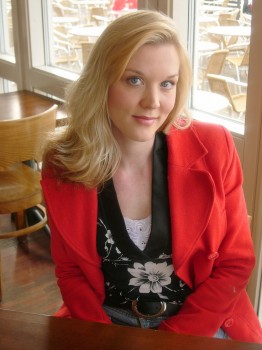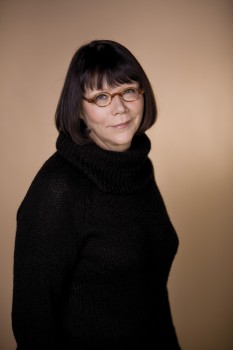Search results for "2010/05/2009/10/writing-and-power"
Writing silence
6 June 2013 | Fiction, poetry, Reviews
In contemporary poetry the ‘lyric I’ of previous decades often hides behind language; the poem’s speaker is not the poet him/herself, narrative is not the norm. The website of a Finnish family magazine in 2007 discussed this: ‘OMG, this thing called contemporary poetry – crap!’; ‘Who knows what kind of psychopharma the writer’s on!’; ‘No meanings, just words one after the other. Why can’t people write something sensible?’ But the writer – and the reader – of contemporary poetry deliberately ventures onto the boundaries of language, and art requires readers (listeners, viewers) to make the decision of what they consider ‘sensible’. Mervi Kantokorpi explores and interprets two new collections of poetry
I read two of this spring’s new collections of poetry one after the other: Kivirivit (‘Stone lines’, Otava 2013) by Harry Salmenniemi and Pysty hiljaisuus (‘Vertical silence’, Teos 2013) by Miia Toivio. The experience was perplexing.
These two works are completely different from one another as regards their individual poetics, and yet the similarities between the themes that arise from them was arresting. Both works seem to inhabit an internal world of sorrow and depression, a world where the function of poetry is to forge and show its readers a path out of the anxiety. In their silence – and even emptiness – both collections have two faces: one lit up, the other darkened by grief. More…
Back to the sources
23 October 2014 | Essays, Non-fiction, On writing and not writing
In this series, authors discuss the difficulties of their trade. Jari Järvelä finds it difficult to stop gathering source material which then gets piled in towers on his desk and in sacks around it. He knows that it’s got to stop though – for when it does, the stories will finally emerge, and life is a bliss… for a moment
When I was younger I thought that writing a novel began with the moment when I sat down at my desk and pressed a key for the first time. A. Hmmm…no, H. No, let’s make that S. No no no, I need a more original beginning…Z!
That’s not the case. The writing of a novel begins between two and twenty years before the choice of the first letter and the first word. Sometimes longer.
In the case of my novel Särkyvää (‘Fragile’, 2014), I know the exact moment of its birth.
Before I began to make a career as an author, I spent a year as a teacher at Hamari school in Porvoo. It was the beginning of the 1990s. Hamari was an old sawmill community on the sea, full of wooden houses more than a century old and motor boats put-putting toward the horizon. The headmaster looked more like a sea dog than a teacher; one morning he announced that it was his fortieth birthday. After that he sat down on the staff-room sofa, fell into deep thought and suddenly ejaculated, ‘Why the hell does a person have to gather so much junk in their life?!’ More…
Here and there
11 September 2009 | Extracts, Non-fiction
Extracts and photographs from Jotain on tapahtunut /Something happened (Musta Taide, 2009; translation by Jüri Kokkonen)
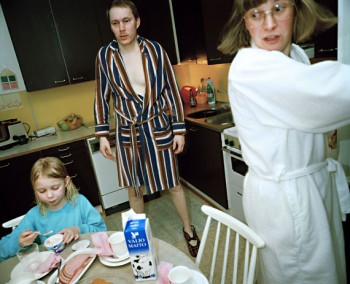 News photos document dramatic, dangerous or tragic incidents – but the photojournalist Markus Jokela is interested in documenting ordinary, domestic and everyday life, be it in Iraq, Russia, Biafra or Sri Lanka. These photographs, with commentaries, are taken from his new book, Jotain on tapahtunut / Something happened (2009), offering glimpses of life in contemporary Finland and in the United States
News photos document dramatic, dangerous or tragic incidents – but the photojournalist Markus Jokela is interested in documenting ordinary, domestic and everyday life, be it in Iraq, Russia, Biafra or Sri Lanka. These photographs, with commentaries, are taken from his new book, Jotain on tapahtunut / Something happened (2009), offering glimpses of life in contemporary Finland and in the United States
I’ve never been particularly enthusiastic about individual news photos, especially about taking them.
A good news photo has to state things bluntly and it has to be quite simple in visual terms. It must open up immediately to the viewer.
But the images in photo reportages do not have to scream simplified truths. They can whisper and ask, and open up gradually. One can come back to them. The reportage is something personal. Though a poor medium for telling about the complex facts of the world, it can provide experiences that survive. More…
Tutti frutti
20 November 2009 | In the news
 The chair of the jury for the Finlandia Prize for Non-Fiction 2009, Professor Pekka Puska, compared choosing a winner to the dilemma of choosing between oranges and bananas. The jury found that among the entries were at least 20 or 30 books that could have gone on the final shortlist of six titles. More…
The chair of the jury for the Finlandia Prize for Non-Fiction 2009, Professor Pekka Puska, compared choosing a winner to the dilemma of choosing between oranges and bananas. The jury found that among the entries were at least 20 or 30 books that could have gone on the final shortlist of six titles. More…
A view to a kill
31 December 1997 | Archives online, Fiction, Prose
Extracts from the novel Klassikko (‘The classic’, WSOY, 1997). Pete drives an old Toyota Corolla without a thought for the small animals that meet their death under its wheels – or anything else, for that matter. Hotakainen describes the inner life of this environmental hazard with accuracy and precision
Pete sat in his Toyota Corolla destroying the environment. He was not aware of this, but the lifestyle he represented endangered all living things. The car’s exhaust fumes spread into the surroundings, its aged engine sweated oil onto the pavement, and malodorous opinions withered the willowherbs by the roadside. Granted that Pete was an environmental hazard, one must nevertheless ask oneself: how many people does one like him provide with employment? He leaves behind him a trail of despondent girlfriends who require the services of human relations workers, popular songwriters, and social service officials; during his lifetime, he spends tens of thousands of marks in automotive shops and service stations, on spare parts and small cups of coffee; he benefits the food industry by being a carefree purchaser of TV dinners and soft drinks. Pete is the perfect consumer, an apolitical idiot who votes with his wallet, the favorite of every government, even though no one seems interested in putting him to work, least of all himself. Every government, regardless of political power struggles, encourages its people to consume. Pete needs no encouragement, he consumes unconsciously, and one might ask: is there anything that he does consciously, the Greens and left-wingers would like him to? Does Pete make smart long-range decisions? Hardly.
Tritonus
30 September 1976 | Archives online, Fiction, poetry
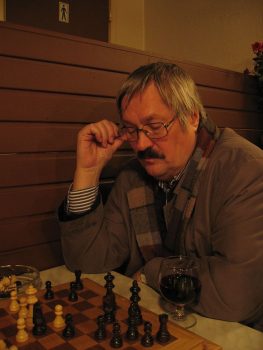
Pentti Saaritsa playing chess. Photo by Otso Kantokorpi, 2006.
Pentti Saaritsa (born 1941), author of six collections of poetry, is one of Finland’s leading left-wing poets, who writes about a wide range of individual and social themes. An outstanding translator, he has had a major role in making Latin American literature, especially the work of Miguel Angel Asturias and Pablo Neruda, known and admired in Finland. He also translates from Russian. The first five poems below have been taken from his latest collection Tritonus (‘Tritone’, Kirjayhtymä 1976), and the last two from his Syksyn runot (‘Autumn poems’, Kirjayhtymä 1973). His poems have appeared in various anthologies abroad and are now being translated into Swedish, English and French. Pentti Saaritsa is a member of the editiorial board of Books from Finland.
![]()
1
From the bowels of each apartment house
always that one unknown sound is borne.
Sometimes like drily dripping water, sometimes
as a stone might bite a lump out of itself,
Or a child awake in the dark might learn the word hair.
And a tenant listens, makes a note of it
perhaps to punctuate the interrupted writing of his consciousness
when it makes him restless:
What now, again so soon, is it coming from me
or from the dead building.
An alarm-bell. Did anyone else hear? More…
Breadcrumbs and elephants
27 March 2014 | Essays, On writing and not writing
In this series, Finnish authors ponder the pros and cons of their profession. Alexandra Salmela operates in two languages, her native Slovakian and Finnish, which has become her literary language. Adventure and torture alternate as she attempts to shape reality into writing
I had started to write before I knew how. With fat wax crayons, in big stick-letters, I scratched my stories in old diaries. There were lots of pictures. From the very beginning, I wrote both poetry and prose. At 11 I didn’t finish my great sea-adventure novel, but at 12 I was already writing my memoirs. They, too, somehow remained unfinished.
Writing is… I wanted to write fun, but in the end I’m not quite sure about that. Writing is adventure and liberation and terribly hard work. Torture of the imagination and the pale copying of real events. Reading is a way to escape reality and at the same time a route to the sources of reality. By writing, you can shape reality in your own image: it’s your own character fault if the result is ugly and depressing.
If I were to write a pink world, it would be so sugary that it would make everyone sick, me and other people. More…
Hearth, home – and writing
30 December 2007 | Archives online, Extracts, Non-fiction
Extracts from Fredrika Runeberg’s Min pennas saga, (‘The story of my pen’, ca. 1869–1877). Introduction by Merete Mazzarella
The joy and happiness I experience at being able to see into [her husband] Runeberg’s soul, at living with him in his heart and his thoughts, belong far too firmly to the mysteries of my soul that I should wish to attempt to express them in words. But of the life that existed around us I should like to try and give an impression of sorts.
We moved to Borgå in 1837. I was unfamiliar with the town and knew only a little old lady, weak with age, and found myself very lonely indeed, accustomed as I was to living with relatives and a genial circle of friends. I did, however, still have my two eldest sons at home to keep me happy and occupied. More…
Power or weakness?
30 September 1986 | Archives online, Drama, Fiction
An extract from the play Hypnoosi (‘Hypnosis’, 1986). Introduction by Soila Lehtonen
As you all know, this company has been my life’s work and it stands for everything I’ve had to renounce. You know that for years I have not received a penny for my personal expenses, that I am on the firm’s lowest wage level, zero.
I haven’t even had a free cup of coffee; if, because I have been working hard or I wanted to improve my concentration, I have felt like a cup of coffee, I have always gone to the canteen during my coffee break and challenged one of the boys to a bout of arm wrestling under the agreement that the loser buys the coffees, and the bloke has paid. The money never came out of the firm’s running expenses, investments, trusts or funds. More…
Nils Erik Villstrand: Valtakunnanosa. Suurvalta ja valtakunnan hajoaminen 1560–1812 [The constituent state. Great power and disintegration 1560–1812]
26 April 2013 | Mini reviews, Reviews
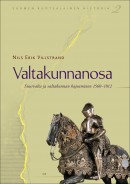 Valtakunnanosa. Suurvalta ja valtakunnan hajoaminen 1560–1812. Suomen ruotsalainen historia 2
Valtakunnanosa. Suurvalta ja valtakunnan hajoaminen 1560–1812. Suomen ruotsalainen historia 2
[The constituent state. Great power and disintegration 1560–1812. Finland’s Swedish history 2]
[Swedish-language original: Riksdelen. Stormakt och rikssprängning 1560–1812, 2008]
Suom. [Finnish translation by] Jussi T. Lappalainen, Hannes Virrankoski
Helsingfors: Svenska litteratursällskapet i Finland, 2012. 424 p., ill.
ISBN 978-951-583-256-6
€40,hardback
This book is the second volume in a four-part series on the Swedish history of Finland. Finland was part of Sweden until 1809, when as a result of war between Sweden and Russia it came under the control of the latter; the change of governance was more or less ratified in a meeting of the Swedish Crown Prince and the Russian Tsar at Turku in 1812. Finland was reunited with its eastern region of ‘Old Finland’, which had long been a part of Russia. In his fascinating book Villstrand examines the Swedish period from several angles, using the viewpoints both of the elite and of the common people. He also reviews the conceptions of the scholars of the time, and portrays the life of the administrative and ecclesiastical circles. A special chapter is devoted to the ‘Finnish period’ of 1721–1809, when Finland gained a particular importance because of the growing threat from Russia. Finland was in many respects an equal part of Sweden, and when the country was ceded to Russia as a Grand Duchy, its old administrative and social systems were largely preserved intact. Swedish also survived for a long time, especially as the language of culture. The book’s apt illustrations are a splendid adjunct to its content.
Translated by David McDuff
So close to me
19 August 2010 | Reviews
Please try this first, before we enter the chamber of horrors. It’s a poem by Timo Harju:
… The old people’s home is the strange hand of God with which he strokes
his thinning hair,
a sudden shower of cackling in the dry linen closet, slightly
sad and lonely
God looks out, stirring his cup of tea as if it were on fire.
If Jesus had lived to grow old and gone into an old people’s home,
he would have been like these.
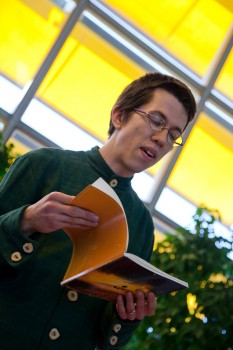
Timo Harju was awarded the 2009 Kritiikin kannukset prize (‘the spurs of criticism’, 2009) of the Finnish Critics' Association, SARV. Photo: Pia Pettersson
This spring a young Finnish female nurse was sentenced to life imprisonment for using insulin to murder a 79-year-old mentally retarded patient. Not long after, sentence was passed on another nurse – this time a meek and submissive-looking middle-aged woman who had murdered a whole series of elderly patients with overdoses of medication.
These are the terms – those of ordinary crime journalism – in which our recent public discussion of long-stay care of the elderly here in Finland was conducted. The discussion was followed by the usual misery of cuts, unchanged diapers, dehydration, over-medication, poor wages for hard work… No wonder that the concept of ‘healthcare wills’ and ‘living wills’, in which people are supposed to say how they want to be cared for in the last stage of their lives – is acquiring a disturbing undertone of ‘better jump before you’re pushed.’ More…

